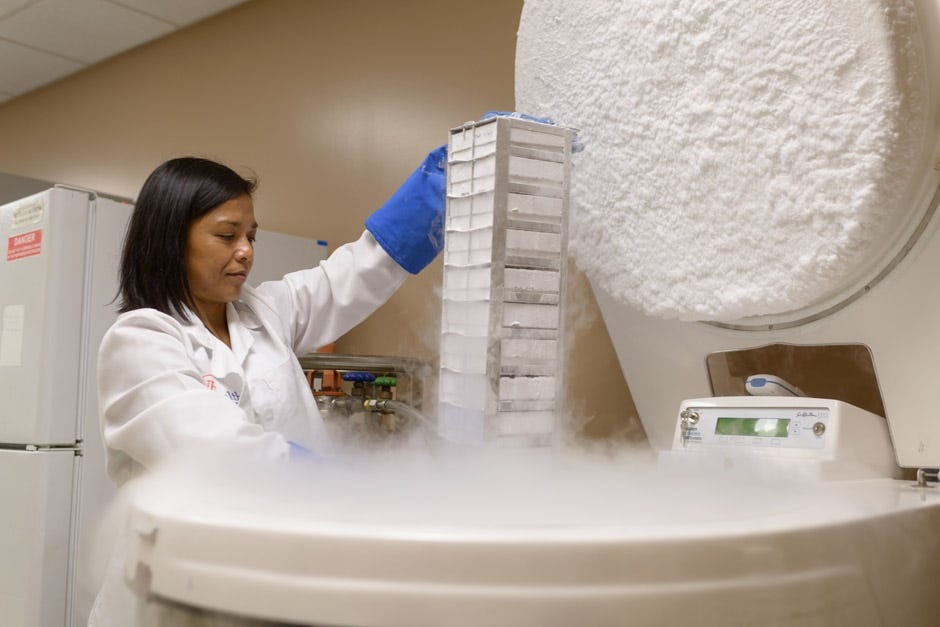![Dr. Catherine Flores works in the lab at the McKnight Brain Institute. [JESSE JONES | SPECIAL TO THE NEWS BULLETIN]](http://127.0.0.1/wordpress/wp-content/uploads/2022/01/ghows-DA-78eab36e-2aa6-571b-e053-0100007f054c-77f79d9a.jpeg)
GAINESVILLE — University of Florida Health brain cancer researchers have discovered a new use of stem cells that could clear a revolutionary pathway to making immunotherapy drugs effective in treating brain cancer.
“This is truly one of the more exciting developments I’ve seen in our field in many years,” said Duane Mitchell, M.D., Ph.D., co-director of the Preston A. Wells Jr. Center for Brain Tumor Therapy at the University of Florida. “This discovery gives us profound insights into the mechanisms of resistance to immunotherapy drugs, and it may offer a roadmap to use immunotherapy to effectively treat many forms of cancer.”
Some tumors can send signals that prevent immune cells from recognizing and attacking the tumor. A new class of immunotherapy drug, called immune checkpoint inhibitors, blocks these inhibitory signals, allowing immune cells to be more effective in fighting the tumor. This treatment has been shown to be effective in treating many types of cancer, but many cancers, including brain tumors, have yet to demonstrate significant response to immune checkpoint inhibitors.
Catherine Flores, Ph.D., an assistant professor in the UF College of Medicine’s Lillian S. Wells Department of Neurosurgery, has been studying mechanisms of resistance to a type of immunotherapy called “PD-1 checkpoint blockade” in rodent models of glioblastoma and medulloblastoma.
Glioblastoma is the most aggressive form of adult brain cancer, with life expectancy of less than 24 months from diagnosis. Medulloblastoma, a brain tumor in the cerebellum that occurs most commonly in children, is curable in most cases, but up to 20 to 30 percent of patients succumb to recurrent disease.
In her paper, Flores and her team show that in a rodent model, “hematopoietic stem and progenitor cells” isolated from bone marrow could be used to reprogram glioblastoma tumors to make them sensitive to immunotherapy treatment.
The diagnosis of glioblastoma is devastating for patients and their loved ones. Standard treatment includes high-dose chemotherapy, aggressive surgery and radiation. Without treatment, survival is typically less than six months.
Flores’ lab tested a new approach in three different malignant brain tumor models: glioblastoma, medulloblastoma and diffuse intrinsic pontine glioma, or DIPG, a rare but deadly glioma that arises in the brainstem.
Of the new approach, Flores said, “It was very encouraging to see that this therapy was efficacious in multiple animal models of brain tumors, not just glioblastoma but also medulloblastoma and brainstem glioma.”
“We have found that the stem cell transfer actually impacts the entire immune system, not just the tumor itself. So if we can boost a host immune system with a simple stem cell transfer, this may have huge implications across different tumor types,” Flores said.
Feasibility and safety studies are underway. Clinical testing may occur within the next 18 months.
This article originally appeared on Crestview News Bulletin: University of Florida researchers: new stem cell use could help defeat brain cancer
